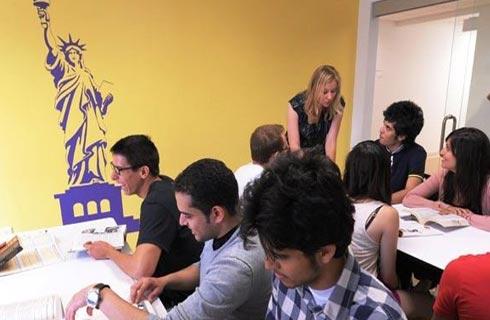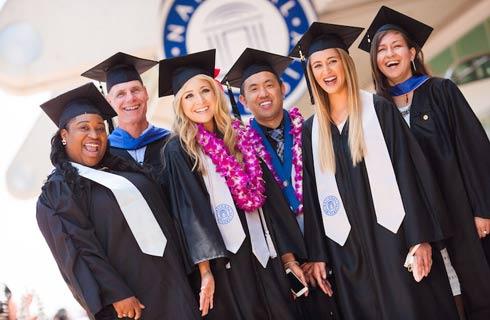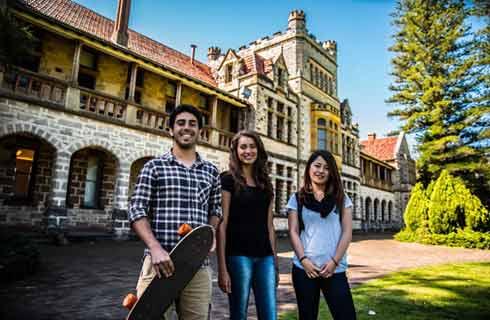音乐史与理论文学硕士
Master of Arts in Music (Critical Music Studies)

学历文凭
Masters Degree

专业院系
Department of Music

开学时间

课程时长

课程学费

国际学生入学条件
A. A bachelor’s degree from a recognized institution.
B. Official transcripts of all undergraduate records, and all graduate records, where applicable.
C. A minimum grade point average of 3.0 (B) in undergraduate music courses.
D. Three letters of recommendation from persons familiar with the student’s work.
E. Examples of undergraduate work:
For Critical Music Studies track applicants, essays in music history, analysis, theory, ethnomusicology, or criticism.
For Composition track applicants, musical scores and recordings.
F. Acceptance by both the Department of Music and the Graduate School.
Applicants are invited to submit any other evidence of their abilities in support of their application for admission, such as recordings of music performances.
All students entering the M.A. program will be assessed in the following areas:
1. Ear training.
2. Basic keyboard skills (for Composition students only).
3. The history and cultural study of music.
4. The analysis of music.
These exams are advisory only; students will be advised on which courses to take to address any gaps or develop specific skills.
English Proficiency
IELTS: Overall score of 6.5, with no subsection recommended to be below 6; and TOEFL iBT: Overall score of 90 for doctoral applicants and 80 for master’s applicants.
IDP—雅思考试联合主办方

雅思考试总分
6.5
- 雅思总分:6.5
- 托福网考总分:80
- 托福笔试总分:160
- 其他语言考试:Duolingo - 105
CRICOS代码:
申请截止日期: 请与IDP联系 以获取详细信息。
课程简介
The MA Program typically takes two years to complete, and students in this program have the option of applying to the PhD program. The PhD program is designed to take five to six years. Students usually spend the first two years completing Masters-level coursework in preparation for qualifying exams, taken at the end of the second year. In the third and fourth year, students work with a steering committee to focus their interests, hone their research skills, and develop their dissertation project. The final two years are spent completing the dissertation. The program in Critical Music Studies (CMS) presents a multidisciplinary approach to the study of music and sound, in history and in the present. Formerly History-Theory-Ethnomusicology, CMS offers a broad approach to the critical and humanistic understanding of how music is created, practiced, and consumed in different times and places. Our faculty and students routinely cross disciplinary boundaries, for example writing dissertations that combine ethnography and archival research. This kind of intellectual ambition is reflected in our curriculum, which allows students to break out of rigid disciplinary pathways and explore other methods. The renamed and redesigned program is responsive, on one hand, to the ways that contemporary scholarship is increasingly defined by interdisciplinary projects (in particular, our teaching and research engages perspectives from sound studies, critical race theory, performance studies, and queer theory). On the other hand, CMS endeavors to guide academic discourse that is dynamically attuned to the world in which we live by incubating scholarship that speaks to the diversity of experiences and perspectives that exist throughout the globe.
相关申请
 预科
预科 奖学金
奖学金 实习机会
实习机会 在校学习
在校学习 跨境学习
跨境学习 校园授课-线上开始
校园授课-线上开始 在线/远程学习
在线/远程学习
开学时间&学费
学费信息仅供参考,请与IDP联系以获取详细信息
| 开学时间 | 时长 | 学费 | 地点 |
|---|
学校排名

世界排名251
数据源:
泰晤士高等教育世界大学排名
关于纽约州立大学石溪分校

石溪大学(简称 SBU)成立于 1957 年,位于纽约州长岛,是一所充满活力的公立大学。该大学共有约 25000 名学生,其中包括 17000 多名本科生,支持着一个庞大而多元化的学术社区,同时提供丰富而令人兴奋的大学体验。该大学提供广泛的本科、研究生和博士课程,涵盖多个领域。该校在科学、工程和医学方面拥有坚实的基础,并辅以艺术、人文和社会科学课程。热门专业包括生物医学工程、海岸环境研究和计算机科学,每个专业都将学校的前沿研究与基于实践经验的学习相结合,为学生完成学业后从事专业工作做好准备。根据2024年《美国新闻与世界报道 》,SBU 在纽约州公立大学中排名第一,在全美公立大学中排名第 26 位。同一份研究报告还将该大学的社会流动性排在全美第 12 位,并跻身全美十大最多元化大学之列。SBU 是纽约州立大学(SUNY)系统的一部分,并于 2022 年被纽约州州长正式指定为纽约州立大学的两所旗舰大学之一。该大学的长岛校区为学生提供了一系列美丽的海滩,同时还拥有靠近纽约市的所有优势,为学生提供了丰富的教育和课外活动机会。
本校相关课程

妇女与性别研究文学士
学历文凭
Bachelor Degree
开学日期
课程费用总额


技术系统管理理学学士
学历文凭
Bachelor Degree
开学日期
课程费用总额


可持续发展研究文学学士学位
学历文凭
Bachelor Degree
开学日期
课程费用总额


西班牙语言文学学士学位
学历文凭
Bachelor Degree
开学日期
课程费用总额


社会学文学学士
学历文凭
Bachelor Degree
开学日期
课程费用总额


社会工作科学学士学位
学历文凭
Bachelor Degree
开学日期
课程费用总额

其他相关课程

音乐文学士[一般]
 滑铁卢大学
滑铁卢大学学历文凭
Bachelor Degree
开学日期
课程费用总额


音乐文学士(荣誉学位)
 圣弗朗西斯泽维尔大学
圣弗朗西斯泽维尔大学学历文凭
Bachelor Degree with Honours
开学日期
课程费用总额


音乐学硕士
 达尔豪斯大学
达尔豪斯大学学历文凭
Masters Degree
开学日期
课程费用总额


音乐学士
 达尔豪斯大学
达尔豪斯大学学历文凭
Bachelor Degree
开学日期
课程费用总额


音乐文学士
 爱德华王子岛大学
爱德华王子岛大学学历文凭
Bachelor Degree
开学日期
课程费用总额


音乐教育学士
 爱德华王子岛大学
爱德华王子岛大学学历文凭
Bachelor Degree
开学日期
课程费用总额










 美国
美国